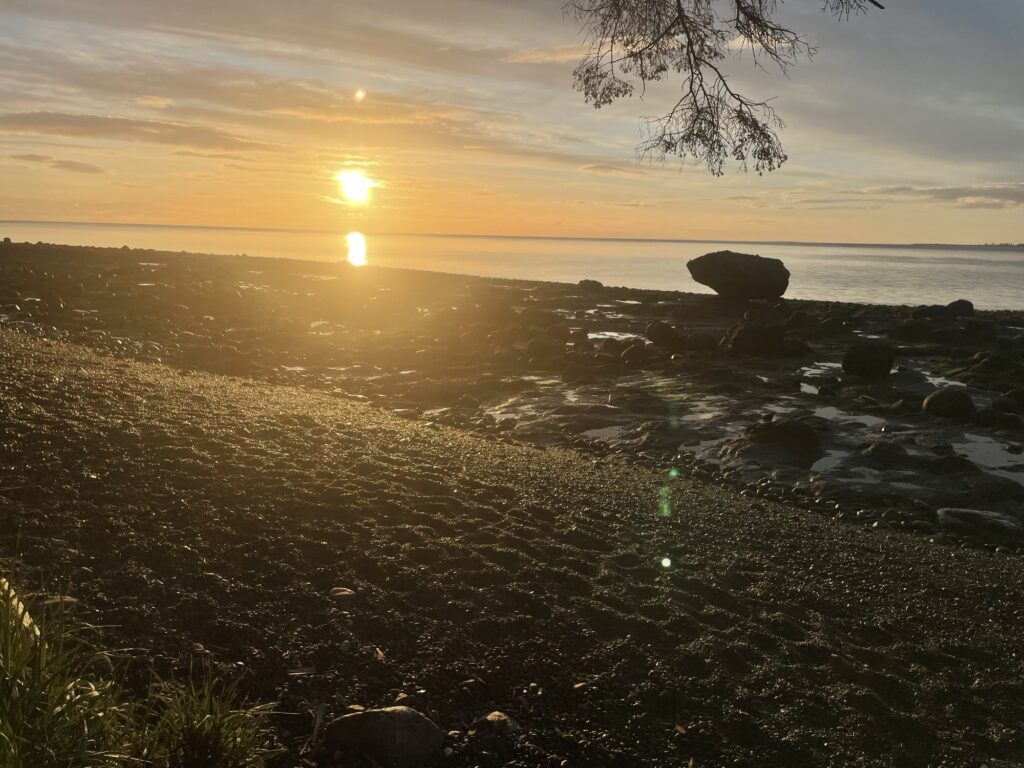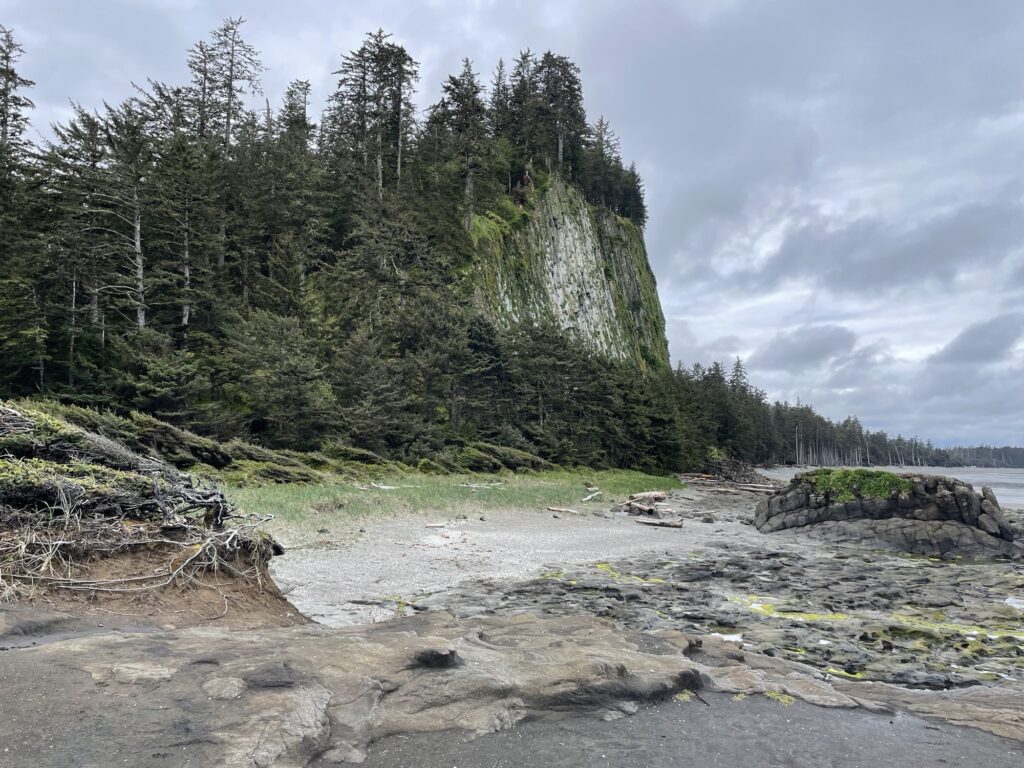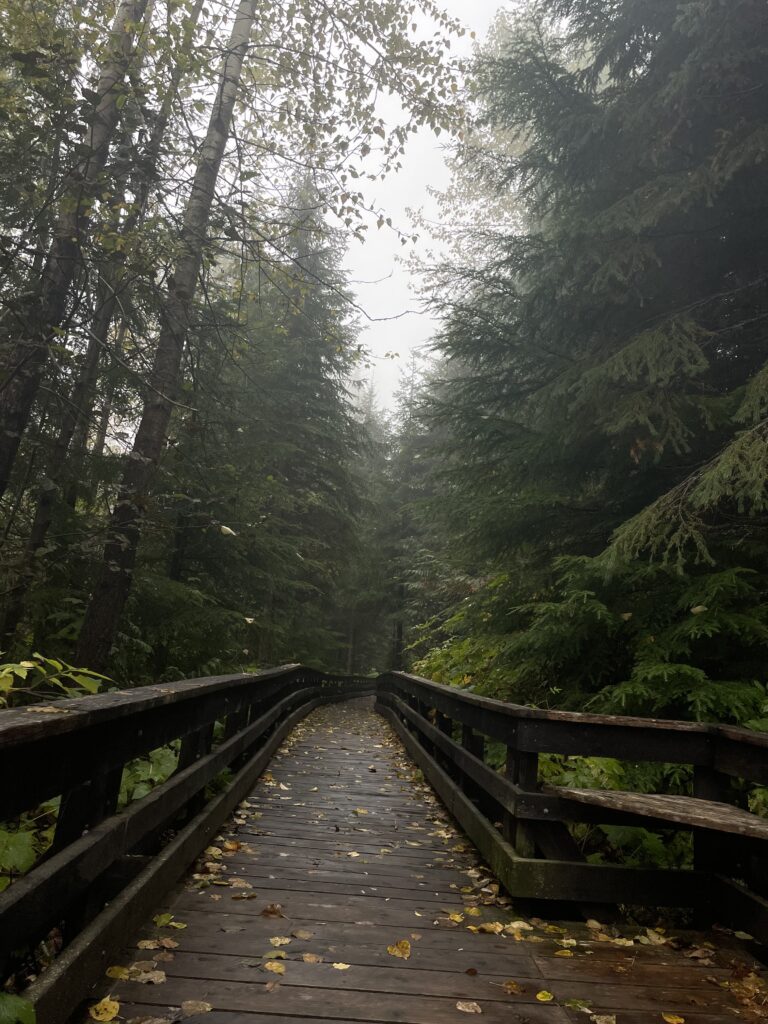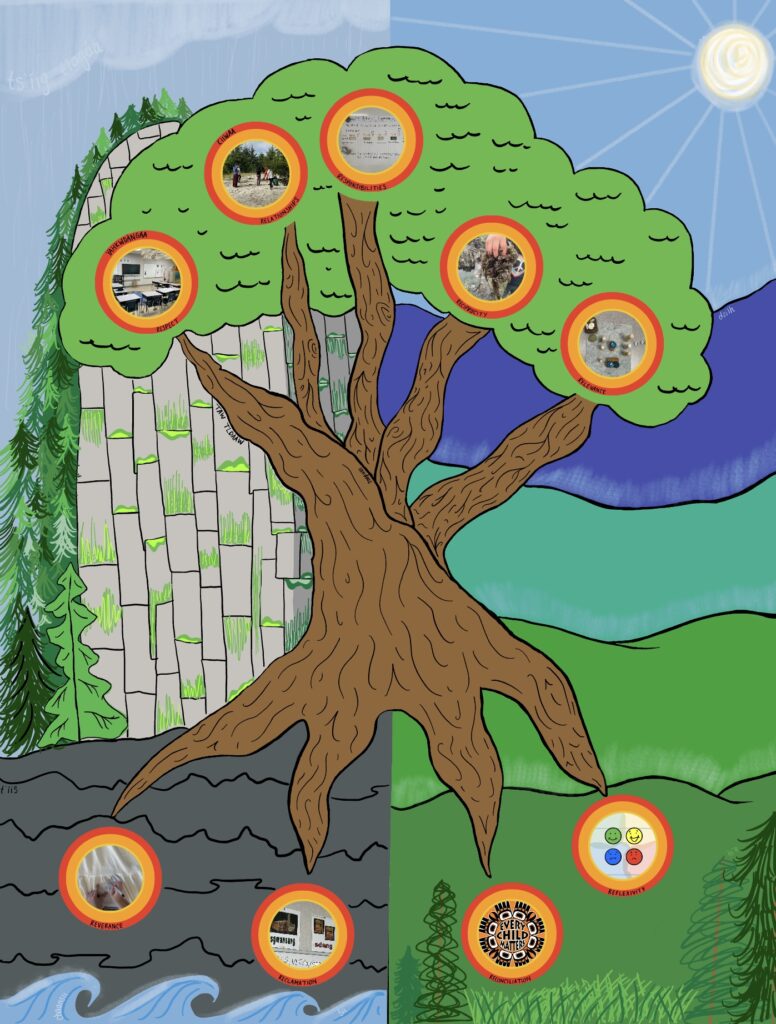Standard 7
One of the beautiful things about the teaching profession is that we are given endless opportunities to learn and extend ourselves professionally and personally. Learning from our co-workers, our students, and trying different grade levels are great, but it can be extremely effective to take learning opportunities outside of our usual environment. Professional Development Days and Conferences are the perfect opportunities to extend our learning as educators and come back with new knowledge to apply to our practice. There are many ways for us to extend our learning to benefit us and to better serve our students. Professional learning opportunities are amazing spaces for collaboration and to see what others are doing. It is important to have an awareness of what is happening around us to enrich our own learning and to offer support to others where possible.
For our Fine Arts Education course this semester, we were instructed to attend this year’s Early Learning Conference in lieu of our usual meeting time. Each Teacher Candidate selected two workshops to attend on topics ranging from literacy and numeracy to strengthening communities both inside and outside the classroom. All of us attended the keynote delivered by Denise Augustine that focused on privilege and allowed for everyone to engage in a deep self-reflection which was uncomfortable at times, but powerful. For my workshops, I chose Engaging in Early Writing and Playful Mathematics for Grades 2&3.
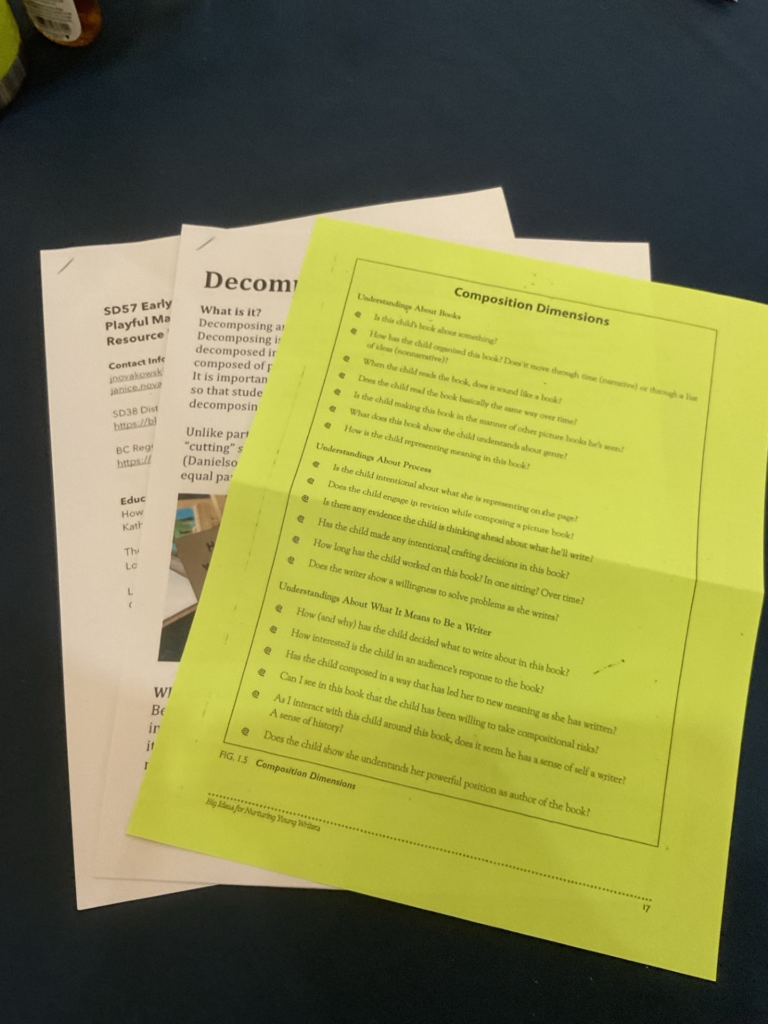
During the writing workshop with Calico Clark, we learned about the importance of presumed competence and focusing on the strengths rather than deficit as our students set out on their writing journey. Throughout the presentation Clark was calling on educators to shift their mindset so that we are naturally focusing on what is happening and where to go next rather than focusing on what was missing. She gave us samples of student work and it was amazing to notice what the students were picking up on instead of focusing on the spelling. It is important to note that the work we were looking at was produced by Kindergarten and Grade 1 students.
Clark emphasized the importance of exploration at this stage of development with writing. In the early stages, we want to encourage our students to take risks in their writing while validating illustrations and oral storytelling as literary forms. As students progress into the following grades, we can begin to implement structural components to writing and hold them accountable to those forms. If we are not mindful of our words and how we approach writing there is potential for students to put up blocks which inhibit them from creating and having a growth mindset when it comes to writing.
At the end of the day, where are students are despite what grade they are in should become our starting point. During the writing workshop we were given some suggestions and lessons that we could try in a primary classroom. The most prominent one was a “making books” activity. Students would be given a booklet with 5 blank pages and make a book about whatever they wanted (within reason). This activity would be great to incorporate UDL within as well. Students could have options to have lines on the page specifically to write or to have a blank booklet as well as for some students the lines can be daunting. We also learned about the importance of writing every day for short periods of time rather than having less frequent writing sessions that are longer. I gained a lot from this session and am excited to incorporate what I learned into my upcoming practicum.
For my second workshop of the day I attended playful mathematics. The main themes throughout this workshop was the importance of creativity and experiential learning in math. The importance of meeting students where they are at and creating entry points that students can engage with was touched on in this workshop as well. There are so many ways to connecting the curriculum to the interests of the students to create a lasting learning memory that helps the big ideas stick with the students.

Manipulatives and creating a “math studio” designated to creating patterns and working with manipulatives to ensure that students are grasping the content while demonstrating their learning in multiple different ways and eventually making a meaningful connection to their own lives and mathematics is the goal. I left the conference with so many ideas to try out during practicum and to embed in my own practice. I also left feeling very excited for the community that I will soon get to join. It was so interesting seeing teachers working in the schools collaborate and get creative with things that they will take with them to their schools and into their practice.
At the end of the keynote and each workshop we were all asked to choose one thing that we would bring into our classrooms as an action plan is what makes Pro-D learning stick. Although I do not have a class to apply this learning to yet, a major takeaway for me would be to create space for creativity in my classroom across subjects.




